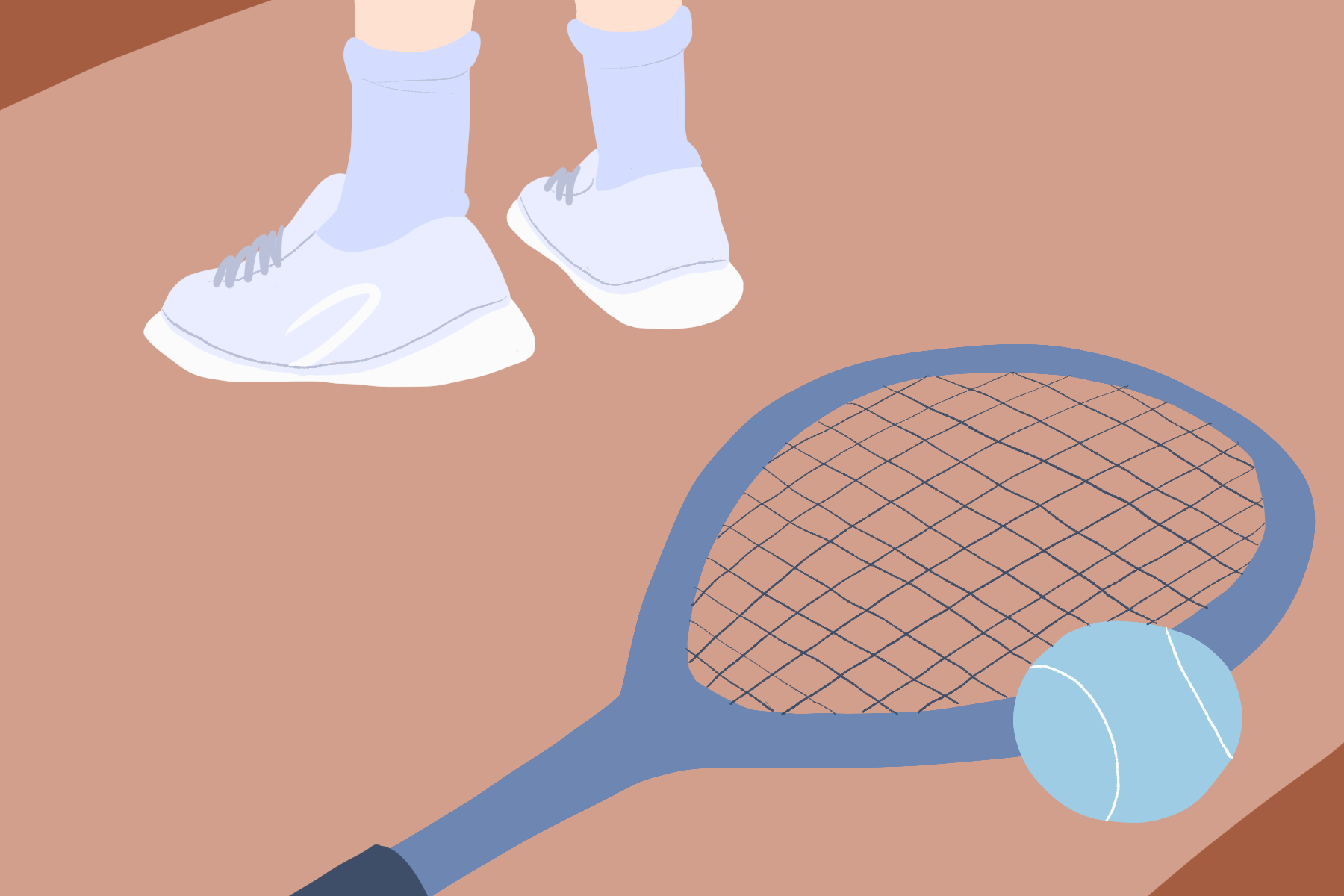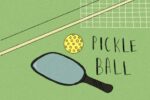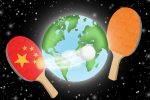The Association of Tennis Professionals Tour takes place across 31 countries and is composed of 64 separate tournaments. The ATP tracks and maintains global rankings for male professional singles and doubles players by awarding them ranking points for matches played. The Women’s Tennis Association works in tandem, hosting slightly fewer events and serving the same role for female professional players, with both WTA and ATP Tour events often happening in conjunction at the same venue. Highly competitive tournaments, such as the Grand Slams (of which there are four a year) award more points and boost a player’s rank much higher than smaller, lesser-known tournaments.
With points for winning smaller tournaments going as low as 50, a Grand Slam win of 2,000 points is a big deal for anyone fortunate enough to bag the trophy. Champions often improve their score enough to shoot up the ranks and skip over several players. With so much riding on these points, it surprised many in the tennis world when the ATP, WTA and International Tennis Federation removed points entirely from Wimbledon after the Lawn Tennis Association banned Russian and Belarusian players.
Russia’s Invasion and the Wimbledon Ban
On Feb. 24, Russia escalated a conflict that began in 2014 by invading Ukraine, sending millions fleeing from the country and displacing a third of the population. In response, people around the world condemned the actions of President Putin and his armed men and pushed companies to divest from Russia entirely. Several businesses closed stores and suspended operations and sales in and to the Eurasian country, including Adidas, H&M, American Express, McDonald’s, Starbucks, Netflix, Sony, Apple and Disney. The UK government was among the many legislative institutions to denounce Russia’s actions, releasing a statement saying, “The UK and our allies condemn the Russian government’s unprovoked and premeditated war against Ukraine.”
Additionally, on Feb. 28, the Executive Board of the International Olympic Committee discussed the war and recommended that International Sports Federations and sports event organizers “not invite or allow the participation of Russian and Belarusian athletes and officials in international competitions.” Soon after, the LTA delivered a statement saying they had united with the All England Lawn Tennis Club (the host and governing body of Wimbledon) to ban all Russian and Belarusian players at its events. This ban encompassed many tournaments, including the Davis Cup, the Surbiton Trophy, and, more importantly, the London-located Grand Slam: Wimbledon.
The LTA announced the ban on April 20 — just two months before the start of the tournament — and the official Wimbledon page stated they would “decline entries from Russian and Belarusian players to The Championships 2022.” Citing the high profile of the event and their responsibility to support their government’s efforts to “limit Russia’s global influence through the strongest means possible,” the ban made clear that “in the circumstances of such unjustified and unprecedented military aggression,” the Russian regime would be denied “any benefits from the involvement of Russian or Belarusian players” during the tournament. In a Parliament discussion a month earlier, British Sports Minister Nigel Huddleston initially said of Daniil Medvedev (a Russian player and current world No. 1) that he “would need to express that he is not a supporter of Putin in order to play.”
The politician also stated that “absolutely nobody flying the flag for Russia should be allowed or enabled,” in a move to ensure the country was not passively supporting Russia, Putin or the violent war effort. This statement raised concerns about the safety of players and their families, as well as possible retaliation efforts against those who might be forced to publicly denounce Russia, resulting in the eventual player ban. The chairman of the AELTC, Ian Hewitt, did acknowledge that the ban “[was] hard on the individuals affected,” and that it was sad to see them “suffer for the actions of the leaders of the Russian regime.” However, taking UK government guidance, political importance and their global platform into consideration, it was not “viable to proceed on any other basis.”
Response
In a press release on May 20, a month after Wimbledon’s decision, the ATP responded to the ban by removing the ranking points from the tournament. Referencing a “rankings agreement” and pointing to the “ability for players of any nationality to enter tournaments based on merit, and without discrimination” as fundamental to the ATP Tour, the men’s association defended their decision as protecting the “rights of players as a whole.” The statement included an option for players to compete as neutral athletes without the Russian flag, a decision eerily reminiscent of the 2017 IOC’s suspension of Russia and the 2019 World Anti-Doping Agency’s ban of the country from international sports competitions for four years. Both decisions followed the discovery of a years-long, state-sponsored doping scheme.
The statement also brought up the “damaging precedent for the rest of the Tour” in Wimbledon’s ban, which was received with irony as many criticized the organization for previously not suspending ATP Tour events in China over the treatment of Peng Shuai. Peng, a former doubles world No. 1, mysteriously disappeared for three weeks following her allegations that Zhang Gaoli, a former vice-premier of China, had assaulted her. Martina Navratilova, an 18-time Grand Slam champion, and Andy Roddick, a former world No. 1, both publicly lambasted the bystander attitude of the ATP Tour in that case.
Steve Simon, chairman and CEO of the WTA, also released a statement on May 20. He condemned the ongoing Russian attack but claimed that the AELTC’s decision not to honor its obligation in using WTA Rankings to consider player entries into Wimbledon (as opposed to political events) violated their foundations of equal opportunity and merit. On this basis, he stated, “The WTA has made the difficult decision to not award WTA ranking points for this year’s Wimbledon Championships.” At the close of the statement, he highlighted that points would be reissued in the future should a consensual solution be found. He also stated that the WTA would “continue to apply its rules to reject such discrimination,” asserting that allowing the ranking points to remain in a tournament with a nationality ban would only “become an example to support discrimination.”
Players had mixed responses to both the Wimbledon ban and the removal of points. Seeing as points expire a calendar year after their accrual, players could compete in many smaller ATP Tour events to try to make up the difference. But even then, they would lose their standing in the world rankings as only the 18 best results are compiled to calculate their rank. Andrey Rublev, current world No. 8, declared the ban to be “complete discrimination,” saying it “[would] not change anything” and that redirecting the prize fund would have a significantly better effect.
On the other side was retired Ukrainian men’s player Sergiy Stakohvsky, who reached a career-high ranking of World No. 31. Taking to Twitter, he wrote of his disappointment in the ATP Tour and said he never expected anyone to “stand on the side of invaders and murderers.” Andy Murray was quoted saying the removal of points, as long as it didn’t stop players from competing, wasn’t “a great move from the ATP,” and that “some players [were] fine with the decision but [he thought] the majority of them were not.”
Novak Djokovic, a historically controversial player and current world No. 3, denounced the invasion of Ukraine through his founded Professional Tennis Players Association but cited discrimination based on nationality as a reason to find fault with the ban. He also allowed that it was “a very unique and weird situation,” and despite everything he would still be competing as “a grand slam is a grand slam.” He did argue that with such decisions, “There will always be someone who will suffer more,” and that it was a “lose-lose situation.” Naomi Osaka also weighed in, saying she felt playing Wimbledon without points was “more like an exhibition” and was still unsure if she would be competing, calling the intention of the measure good but noting that “the execution [was] all over the place.”
Wimbledon 2022
After all the hubbub of the Wimbledon ban and the responses of the ATP and WTA, tennis fans aren’t sure who they’ll see at the Championships. Some, if not many of the top players are still competing — including Novak Djokovic, Rafael Nadal and Serena Williams — though with the main draw starting on June 24, competitors are still trickling onto the London grounds. Notably, Alexander Zverev, Roger Federer, Leylah Fernandez and Naomi Osaka will all sit out this year’s Wimbledon tournament due to injuries, not the ban or point removal. In contrast, Eugenie Bouchard, an ex-Wimbledon finalist pulled out due to a combination of a shoulder injury and a lack of ranking points.
Whether or not other top players pull out for similar point-related reasons is yet to be seen, though very few have mentioned publicly their decision to play or not to play. Wimbledon is home to some of tennis history’s most memorable moments, including the longest tennis match in history (an 11-hour match in 2010 between John Isner and Nicolas Mahut), Andy Murray’s win to become the first British male player to receive the title in 77 years (a 2013 win against Novak Djokovic) and what is called the “greatest tennis match in history,” the 2008 match up of Federer (the world’s then number one) and Rafael Nadal (then number two); ultimately, one thing is for certain. No matter who competes, the Championships will see top athletes play phenomenal tennis in the coming weeks.

















